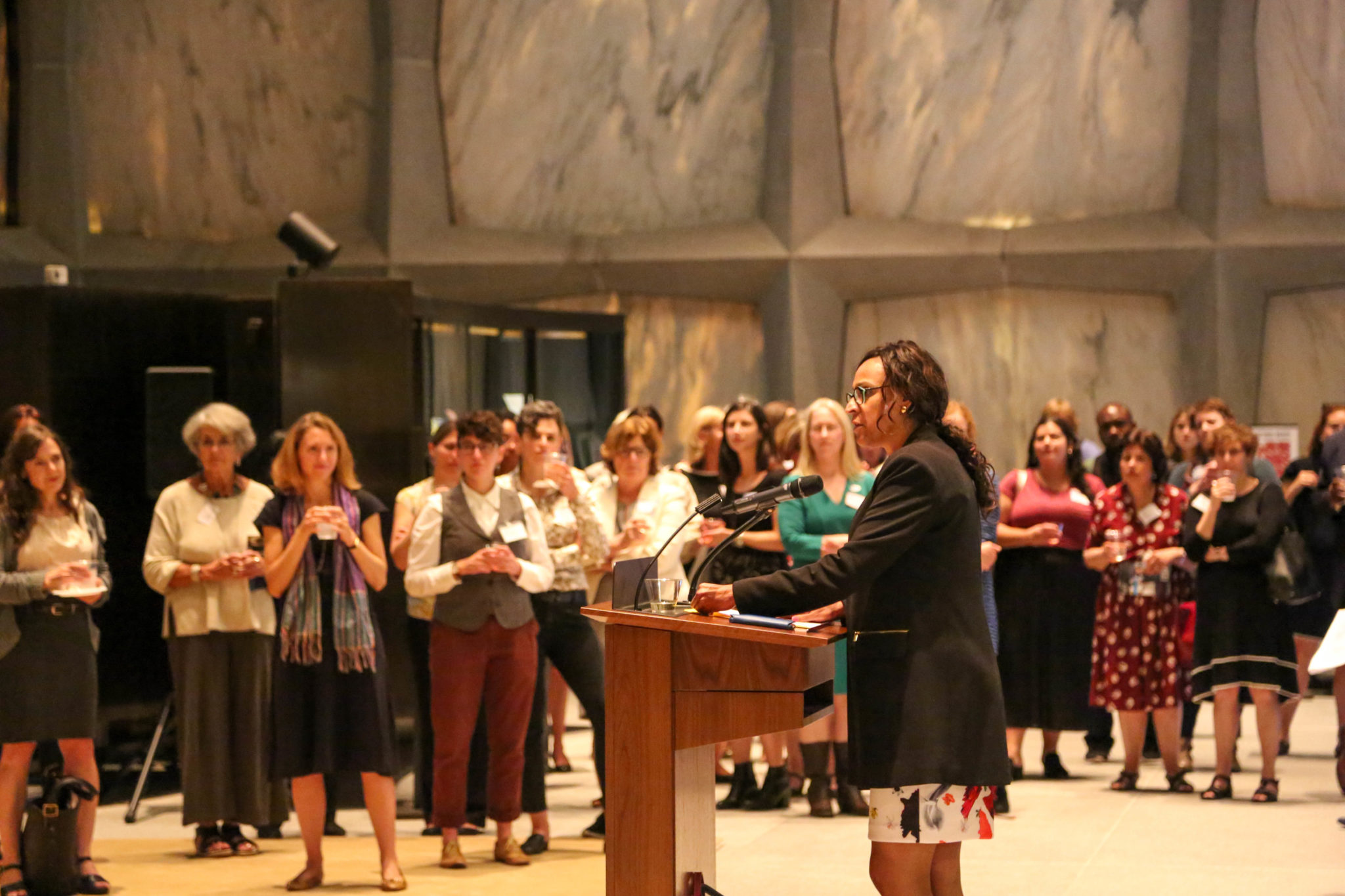
Alisia Pan
As Yale prepares to celebrate the 50th anniversary of the coeducation of Yale College and the 150th anniversary of female students at the University in just two weeks, the Yale Women Faculty Forum hosted an opening reception on Tuesday, where female faculty and alumni recalled the days of coeducation and the progress still to come.
With 100 attendees packed into the Beinecke Rare Book and Manuscript Library, the reception kicked off with speeches from WFF Chair Claire Bowern, Kim Goff-Crews, the secretary and vice president of student life at Yale, Eve Hart Rice ’73, former president of the University Council and current Corporation member and Connie Royster ’72. The speeches focused on the progress that coeducation has made at Yale, as well as the work that still must be done to make Yale a more inclusive place.
“This history of coeducation is a continuing challenge. Make this anniversary mean something beyond a celebration,” Bowern said in her opening address. “So that in 2020 and 2021 and beyond, the work will still be going on.”
As a linguistics professor, Bowern spoke about often being treated differently by students due to her gender; people frequently use the incorrect titles and mistaking her for a graduate student, often underestimating her qualifications, she added. Students also questioned Bowern’s grading methods at higher rates, compared to her male colleagues.
In their respective speeches, Royster and Rice, both members of Yale College’s first coeducational classes, shared stories of ambition and perseverance despite the many closed doors they encountered during their time at Yale.
“While we were very ready for Yale,” Royster said. “Yale was not ready for us.”
Among other inequalities, Yale lacked proper women’s bathroom facilities and health services in the first year of coeducation. Of the 407-tenured faculty, merely three were women. Today, women still only make up 27 percent of tenured faculty.
Liza Comita, an assistant professor in the School of Forestry & Environmental Studies, told the News that women only make up between a fifth and a quarter of both tenured and non-tenured faculty respectively in the forestry school. According to Comita, this indicates that the forestry school hires at a rate of 20 percent women and 80 percent men, which she called “very problematic.”
The best way to resolve this, according to Comita, is to “ensure that female professors are being hired and maintained throughout their entire career path.”
The WFF was established in 2001 to foster gender equality throughout the University and to highlight the presence and accomplishments of women at Yale. Since then, they have produced reports on sexual misconduct at Yale, advocated for parental and family support for faculty, held conferences about gender equality and created mentoring programs for junior faculty.
Emily Hammad Mrig, a fellow in health policy management at the School of Public Health, said she hopes to see WFF “continue to support younger academic women in the various stages of their career … because the pipeline to an academic career starts with finding ways to make deep and long-lasting connections.”
Currently, WFF is working to feature more portraits of women on campus. For example, WFF commissioned the portrait of the first seven women to receive Yale doctorates, which has been on permanent display in the Sterling Memorial Library nave since 2016. Other initiatives of WFF include the Seed Grant program, which provides funding for research relating to gender in higher education, and Women at Yale: A Tour, which is a walking tour relating to accomplishments of women at Yale.
“We have learned many lessons along the way, and one of them is that merely being there is not enough,” said Rice. “Presence without voice is only marginal victory. Moreover, voice without commensurate culture of being heard squanders enormous talent and opportunity.”
The 50th anniversary commemorative weekend for the coeducation of Yale College will be celebrated Sept. 19-22.
Julia Brown | julia.k.brown@yale.edu







